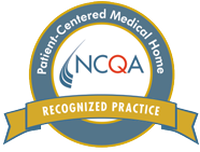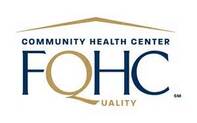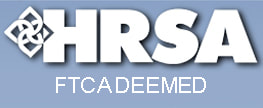Well Child Checks are a staple of every new parent’s life. From the day they are born throughout their first year, your baby will have several wellness checks to ensure that they are healthy, happy, and reaching developmental milestones. Well Child Checks are vital for immunizations, healthcare, and support from your pediatrician. At Kaniksu Community Health, we love establishing relationships with parents that last throughout their baby’s childhood. From newborn through adulthood, we will be there for every step along the way.
In this guide, we will explore Well Child Checks in-depth, including what to expect, when to schedule them, and how to give your little one the best care possible.
In this guide, we will explore Well Child Checks in-depth, including what to expect, when to schedule them, and how to give your little one the best care possible.
|
During the 1-month checkup, the provider will examine your baby's fontanels (soft spots) and the shape of their head. Additionally, they will go over the results of your baby's newborn screening tests. Your provider will monitor your child's growth rate and vital signs.
Your baby may receive their second hepatitis B shot during this visit. The first shot is typically administered at birth, and the second shot can be given at the 1- or 2-month appointment. The provider might inquire about your baby's head control and vocalizations. They will also check in on your well-being and ask screening questions regarding postpartum depression. This monitoring for postpartum depression will continue until your baby's 6-month checkup. |
|
During the 2-month visit, your baby will be given their first doses of DTaP (diphtheria, tetanus, and pertussis), Hib (haemophilus influenzae type B), IPV (polio), and PCV (pneumococcal disease) immunizations, as well as an oral vaccine for RV (rotavirus).
The provider will monitor your child's growth rate and vital signs. They will assess your baby's posture and inquire about their head control, ability to push up, and if they are smiling voluntarily at this stage. |
|
During your baby's 4-month checkup, they will be given the rotavirus immunization and a second DTaP vaccine. In addition, the IPV, Hib, and PCV vaccines will be administered.
At the appointment, the provider will monitor your child's growth rate and vital signs. As well as ask about your baby's vocalizations, hand movements, and examine their gums. Furthermore, they will suggest dental care once the first tooth emerges. |
|
During the 6-month checkup, the provider will monitor your child's growth rate and vital signs. They might discuss your baby's readiness to begin solid foods, as well as their developmental progress like rolling over and babbling.
Typically, the third doses of hepatitis B, DTaP, Hib, PCV, and IPV immunizations are administered at 6 months, along with an oral rotavirus vaccine. |
|
During your baby's 9-month checkup, they will receive any overdue immunizations, which may include a flu shot during flu season. The provider will monitor your child's growth rate and vital signs. They will also examine for new teeth and inquire about your baby's mobility, vocabulary, and fine motor skills. Additionally, they might emphasize the significance of babyproofing your home now that your baby is on the move.
|
|
During your baby's 12-month checkup, the provider will monitor your child's growth rate and vital signs. They may also inquire about your baby's pointing, speech development, and standing abilities.
Your baby will receive the following immunizations:
|
|
During your baby's 15-month checkup, the provider will monitor your child's growth rate and vital signs. They may also inquire about your baby's pointing, speech development, and standing abilities.
Your child may receive DTaP, Hib, PCV, MMR, hepA, varicella, flu immunizations. The provider will monitor your child's growth rate and vital signs. They may also check for new teeth, and assess, hearing, and vision. |
|
During the 18-month check-up, the provider will monitor child's growth rate and vital signs. They will administer DTaP and hepatitis A immunizations, and catch up on any missed immunizations. Your provider will also ask about your toddler's sleeping, eating, potty-training readiness, walking, and ability to follow simple commands.
Questions you may have
|














